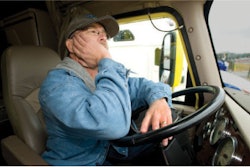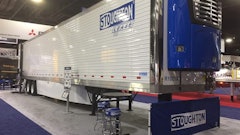
The U.S. Department of Transportation’s (DOT) Federal Motor Carrier Safety Administration (FMCSA) and Federal Railroad Administration (FRA) announced that the agencies are seeking public input during the next 90 days on the impacts of screening, evaluating, and treating rail workers and commercial motor vehicle (CMV) drivers for obstructive sleep apnea (OSA). The National Transportation Safety Board recommended that DOT take action to address OSA screening and treatment for transportation workers.
The joint Advance Notice of Proposed Rulemaking (ANPRM) is the first step as both agencies consider whether to propose requirements specifically on OSA. FRA and FMCSA will host three public listening sessions to gather input on OSA in Washington, D.C., Chicago, and Los Angeles.
It is estimated that 22 million men and women could be suffering from undiagnosed OSA, a respiratory disorder characterized by a reduction or cessation of breathing during sleep. Undiagnosed or inadequately treated moderate to severe OSA can cause unintended sleep episodes and deficits in attention, concentration, situational awareness, memory, and the capacity to safely respond to hazards when performing safety sensitive service. For individuals with OSA, eight hours of sleep can be less refreshing than four hours of ordinary, uninterrupted sleep, according to a study by the American Academy of Sleep Medicine.
Editors Insight: The last thing many fleet owners want to hear about is the possibility of having additional driver testing requirements, but the transportation industry has a stake in having the healthiest drivers possible. Sleep apnea has resulted in fatal accidents, according to a recent article in Fleet Owner Magazine.
As driver screening requirements have increased, more fleet owners are outsourcing this task to specialists. But whether or not a company outsources driver screening, it is important for the persons involved in the screening process to be current on all aspects of qualifying drivers.
Screening qualified, healthy drivers has become a specialty in the commercial carrier industry as commercial driver licensing requirements have increased. 3-14-16 By Elliot Maras


















